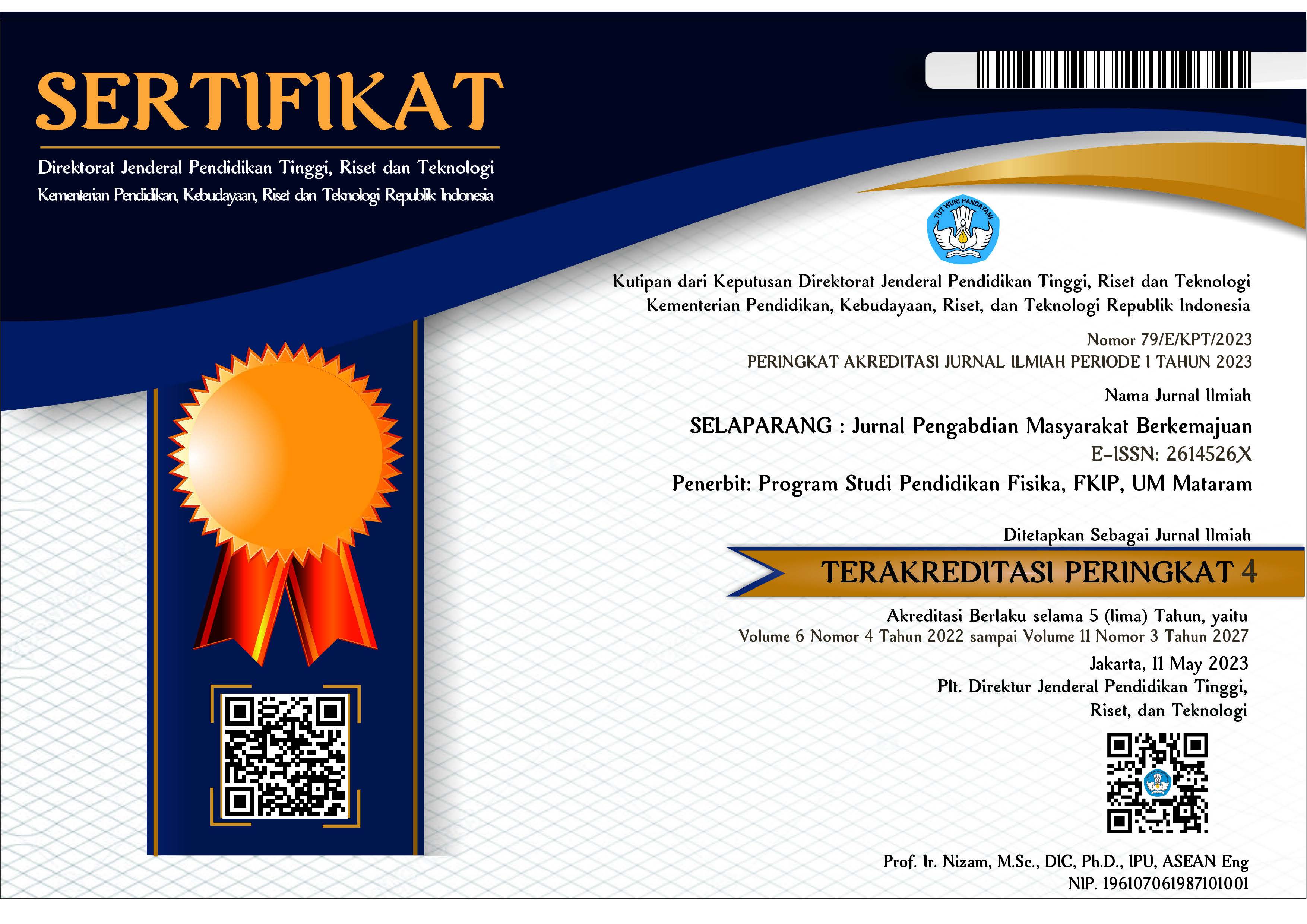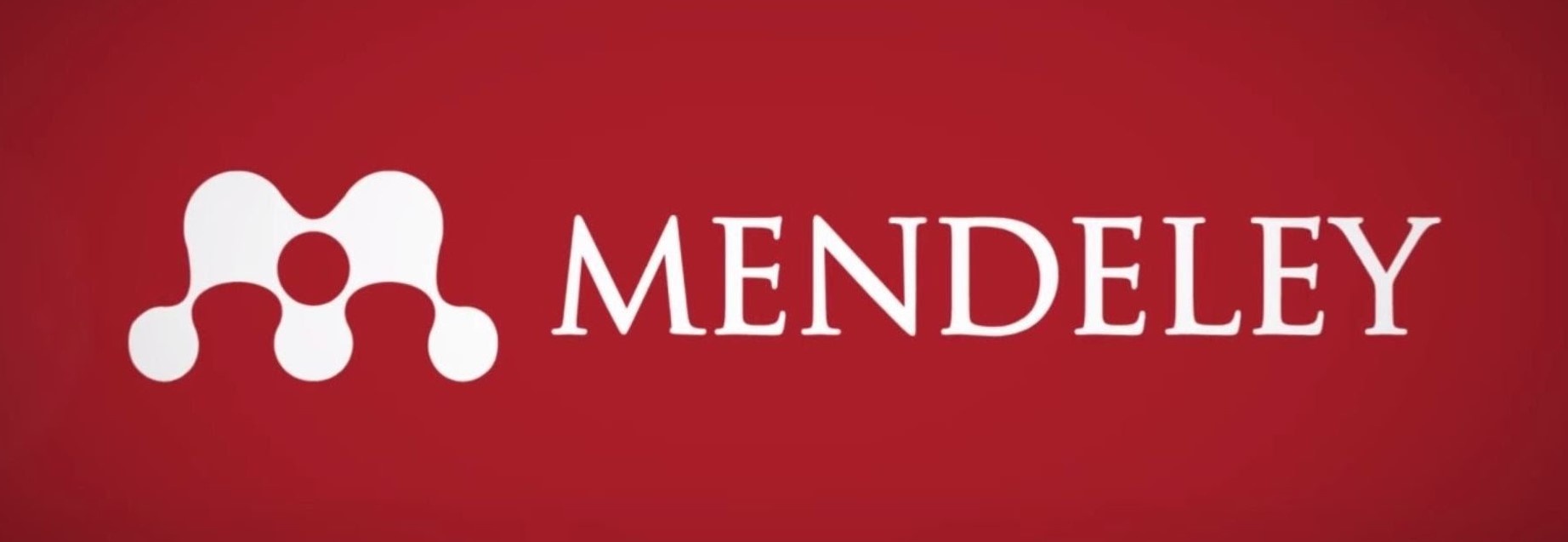Penguatan kompetensi akuntan muda dalam menyongsong generasi emas Indonesia 2045
Abstract
Abstrak
Kegiatan pengabdian kepada masyarakat ini dilaksanakan dalam bentuk webinar nasional dengan tema "Strategi Pengembangan Akuntan Muda Toward Indonesia's Golden Generation 2045". Tema tersebut diangkat sebagai respons atas pentingnya peran akuntan muda dalam mendukung visi besar Indonesia Emas 2045. Tujuan kegiatan ini adalah untuk memberikan pemahaman strategis kepada mahasiswa akuntansi mengenai kompetensi yang harus dimiliki di era digital, pentingnya etika profesional, serta kesiapan menghadapi tantangan global melalui sertifikasi dan literasi teknologi. Kegiatan diikuti oleh sekitar 100 peserta dari berbagai perguruan tinggi di Indonesia dan dilaksanakan secara daring melalui platform Zoom Meeting. Metode kegiatan mencakup penyampaian materi oleh narasumber, sesi tanya jawab interaktif, serta pelaksanaan pre-test sebagai alat ukur pemahaman awal. Hasil pre-test menunjukkan bahwa sebagian besar peserta memiliki pengetahuan dasar yang cukup baik, namun masih kurang pada aspek konseptual seperti visi Indonesia Emas, literasi digital, dan peran strategis profesi akuntan. Webinar ini berhasil meningkatkan kesadaran peserta akan pentingnya penguatan kompetensi teknis dan non-teknis sebagai akuntan muda. Diperlukan program lanjutan dalam bentuk pelatihan, mentoring, serta kolaborasi antara dunia pendidikan dan industri agar transisi mahasiswa ke dunia profesional dapat berlangsung lebih optimal dan adaptif.
Kata kunci: akuntansi; akuntan muda; webinar; literasi digital; indonesia emas
Abstract
This community service activity was conducted in the form of a national webinar titled "Strategies for Developing Young Accountants Toward Indonesia's Golden Generation 2045." The theme was raised in response to the crucial role of young accountants in supporting Indonesia's 2045 vision. The objective was to provide accounting students with strategic insights into the competencies required in the digital era, the importance of professional ethics, and the readiness to face global challenges through certification and digital literacy. The event was attended by approximately 100 students from various universities across Indonesia and held virtually via Zoom Meeting. The methods included material presentations by speakers, interactive Q&A sessions, and a pre-test to assess baseline understanding. Pre-test results revealed that while participants had a good foundational knowledge, gaps remained in conceptual areas such as the Golden Indonesia vision, digital literacy, and the strategic role of accountants. The webinar successfully increased participants' awareness of the importance of strengthening both technical and non-technical competencies. Further follow-up is needed through training programs, career mentoring, and collaboration between academia and industry to ensure a smooth and adaptive transition from campus to professional environments.
Keywords: accounting; young accountants; webinar; digital literacy; golden indonesia
Keywords
Full Text:
PDFReferences
Aripin, S. N., Hadinata, H., & Kurnia, D. (2023). Dampak Akuntansi Manajemen dari Digitalisasi. ADI Bisnis Digital Interdisiplin Jurnal, 4(2). https://doi.org/10.34306/abdi.v4i2.1040
Berikol, B. Z., & Killi, M. (2021). The effects of digital transformation process on accounting profession and accounting education. In Accounting, Finance, Sustainability, Governance and Fraud. https://doi.org/10.1007/978-981-15-1928-4_13
Deloitte. (2022). 2022 Global Marketing Trends | Deloitte Insights. Deloitte.
Efferin, S., & Harindahyani, S. (2024). Akuntan Dan Profesi Akuntansi Di Era Artificial Intelligence.
Fisher, R., Murphy, V., & Murphy, V. (1995). A Pariah Profession? Some student perceptions of accounting and accountancy. Studies in Higher Education, 20(1). https://doi.org/10.1080/03075079512331381790
Gaol, Y. M. jeni lumban. (2021). Sistem Informasi Akuntansi. Konsep-Konsep Dasar Sistem Informasi Akuntansi.
Ghofirin, M., & Primasari, N. S. (2021). Readiness to Face Society 5.0 Era, What Interpersonal Skill Does an Accounting Student Have ?: An Evidence from Indonesia. Procedia Business and Financial Technology, 1. https://doi.org/10.47494/pbft.2021.1.9
Husain, F., Khairunnisa, K., & Sari, N. I. P. (2025). Peran Audit Internal Dalam Meningkatkan Akuntabilitas Keuangan Pemerintah. VALUE, 6(1), 34-50.
International Federation of Accountants. (n.d.). Disrupting the accountancy profession. Retrieved June 17, 2025, from https://www.ifac.org/knowledge-gateway/discussion/disrupting-accountancy-profession
Kementrian PPN/Bappenas. (2017). Visi Indonesia 2045. Kementrian PPN/Bappenas, 1(September).
Kertati, I., Susanti, T., Muhammadiah, M., Efitra, Zamista, A. A., Rahman, A. A., Yendri, O., Pratama, A., Rusmayadi, G., Nurhayati, K., Zabua, R. S. Y., Artawan, P., & Arwizet. (2023). Model & Metode Pembelajaran Inovatif Era Digital. In Sonpedia.
Komdigi. (2021, 24 Januari). Angkatan kerja produktif melimpah. Komdigi. https://www.komdigi.go.id/berita/artikel/detail/angkatan-kerja-produktif-melimpah
Kuntadi. (2019). Audit Internal Sektor Publik. In Jakarta: Salemba Empat.
Kurniawan. (2018). Penguatan pendidikan karakter sebagai upaya pembudayaan dan pelembagaan nilai-nilai pancasila dan wawasan kebangsaan generasi muda. Universitas Nusantara PGRI Kediri, 01.
Mujiono, M. N. (2021). The Shifting Role of Accountants in the Era of Digital Disruption. International Journal of Multidisciplinary: Applied Business and Education Research, 2(11). https://doi.org/10.11594/10.11594/ijmaber.02.11.18
Panggabean, M. (2022). BONUS DEMOGRAFI DAN CAPAIAN INDIKATOR PEMBANGUNAN SOSIAL EKONOMI KABUPATEN SANGGAU DAN KOTA PONTIANAK. Prosiding Seminar Nasional Seminar Akademik Tahunan Ilmu Ekonomi Dan Studi Pembangunan, 5.
Prakosa, D. K., & Firmansyah, A. (2022). Apakah Revolusi Industri 5.0 Dapat Menghilangkan Profesi Akuntan? Jurnalku, 2(3). https://doi.org/10.54957/jurnalku.v2i3.282
Roberts, P. (2015). Higher education curriculum orientations and the implications for institutional curriculum change. Teaching in Higher Education, 20(5). https://doi.org/10.1080/13562517.2015.1036731
Rosmida, R. (2019). Transformasi Peran Akuntan dalam Era Revolusi Industri 4.0 dan Tantangan Era Society 5.0. Inovbiz: Jurnal Inovasi Bisnis, 7(2). https://doi.org/10.35314/inovbiz.v7i2.1197
Sa’adah, Q., Kusumaningrum, D., & Kirowati, D. (2017). FAKTOR-FAKTOR YANG MEMPENGARUHI PERSEPSI MAHASISWA JURUSAN AKUNTANSI UNTUK MEMPEROLEH GELAR SERTIFIKASI PROFESIONAL AKUNTANSI. Jurnal AKSI (Akuntansi Dan Sistem Informasi), 1(2). https://doi.org/10.32486/aksi.v1i2.118
Saputri, A., & Fauziyyah, N. (2023). Transisi Akuntansi Menuju Digitalisasi. MIZANIA: Jurnal Ekonomi Dan Akuntansi, 3(1). https://doi.org/10.47776/mizania.v3i1.632
Saputri, Anjeli, dan N. F. (2021). Transisi Akuntansi Menuju Digitalisasi. Jurnal Ekonomi Dan Akuntansi, 3(1).
Sin, S., Reid, A., & Jones, A. (2012). An Exploration of Students’ Conceptions of Accounting Work. Accounting Education, 21(4). https://doi.org/10.1080/09639284.2012.661604
Sumarna, A. D. (2020). RESHAPING FUTURE SKILLS OF PROFESSIONAL ACCOUNTANTS. Ultimaccounting : Jurnal Ilmu Akuntansi, 12(2). https://doi.org/10.31937/akuntansi.v12i2.1516
Tarasevych, H. P., & Chyzhevska, L. V. (2023). Ethical responsibility of professional accountants in the context of supporting sustainable development goals. Problems of Theory and Methodology of Accounting, Control and Analysis, 2(55). https://doi.org/10.26642/pbo-2023-2(55)-49-54
WEF. (2023). Future of jobs report 2023. In World Economic Forum.
DOI: https://doi.org/10.31764/jpmb.v9i4.32295
Refbacks
- There are currently no refbacks.

This work is licensed under a Creative Commons Attribution-ShareAlike 4.0 International License.
______________________________________________________
Jurnal Selaparang
p-ISSN 2614-5251 || e-ISSN 2614-526X
EDITORIAL OFFICE:



















